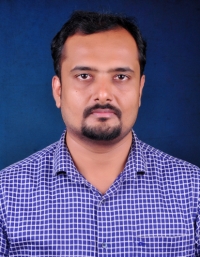The Department of Electrical & Electronics Engineering (EEE) was established in the year 2002 and offers two programmes.
The Department has a team of well qualified and dedicated faculty with wide range of specialization. The BE programme offers a unique mix of electrical, electronics and computer related courses enabling the students to take up a professional career/higher studies in any of these areas. Subjects on Electric Circuit Analysis, Control Systems, EV Technologies, Protection and Power Systems, Electric Power Generation, Transmission and Distribution give the basic exposure to electrical fundamentals, whereas Analog and Digital Electronics, Microcontrollers, Digital Signal Processing, Embedded Systems, Hardware Description Languages(HDL), Advanced CMOS VLSI Design, Advanced Programming Languages make attractive blend of Electrical& Electronics Engineering concepts thereby creating excellent placement opportunities in various fields such as Construction, Power Distribution, Automobile, Aeronautical, Information Technology, Healthcare sectors, Semiconductor Device Design and Fabrication. The students of EEE branch are placed in Electrical & Electronics Engineering related Organizations and Software Companies. With the objective of making graduates Industry ready, Computer labs with modern Software and Hardware labs on Transformers, Motors, Power System Protective Relays, Power Electronics and Drive Systems have been operational and have helped students to improve their Technical Knowledge and Skills. The Department of Electrical & Electronics Engineering at SJEC is one of the few Departments in the region to secure NBA Accreditation since 2013.
Facilities:
STUDENTS
COMPETITION SUCCESS FOR KPTCL, KPCL AND MESCOM
WORTH INDUSTRY BASED LAB FACILITIES
PLACEMENT
"Excel in Electrical Engineering Education and Research"
Knowledge and Attitude Profile (WK)
E&E Engineering Graduates will be able to:

Associate Professor, HOD
An academician, deeply committed to advancing knowledge in electrical and electronics engineering, with an experience of 6 years in teaching and 5 years in research. Currently, I hold the position of Associate Professor and Head of the Electrical and Electronics Engineering Department. My research endeavors concentrate on tackling power quality issues in power systems, aiming to enhance reliability and efficiency.
B.E, M.Tech, Ph.D
hod.eee@sjec.ac.in
Take the first step towards your dreams—apply for admission and transform your aspirations into reality!
Apply Now!© SJEC is Made with by Siona Solutions